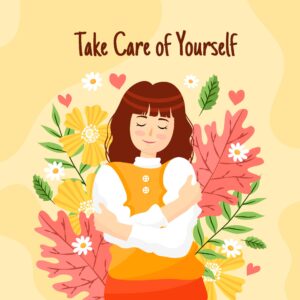Do you feel sad or anxious during ovulation? You may be experiencing ovulation depression. This condition is relatively common and can cause a lot of distress for women who suffer from it. In this blog post, we will discuss the causes, symptoms, consequences, and treatment of ovulation depression. We hope that this information will help you manage your symptoms and feel better.
Contents
What Is Ovulation Depression? 
Ovulation depression is a condition that can affect women of childbearing age. It is characterized by a change in mood and energy levels during the second half of the menstrual cycle.
For some women, this may include feeling blue or sad, having less energy, and experiencing changes in sleep patterns. Others may feel more anxious or irritable.
It has a relation to hormonal changes that occur during the menstrual cycle. These changes can affect brain chemistry and trigger mood swings.
What Are The Symptoms?
If you are suffering from such a subtype of depression, you may witness the following signs:
- feeling sad or blue
- having trouble sleeping
- experiencing changes in your appetite
- feeling anxious or stressed
- losing interest in activities that you normally enjoy
- feeling overwhelmed
- feeling irritable or cranky
- having difficulty concentrating
- feeling like you can’t cope
- physical symptoms such as headaches or stomach upset
- feeling cramps
- lower back pain
- breast tenderness
These are some common symptoms of ovulation depression.
What Are The Risk Factors?
Several risk factors often result in ovulation depression, including:
Premenstrual dysphoric disorder (PMDD) 
There are a few studies that suggest that women with the premenstrual dysphoric disorder (PMDD) are more likely to experience depression during ovulation. PMDD is a severe form of premenstrual syndrome (PMS) that can cause debilitating physical and emotional symptoms in the weeks leading up to menstruation.
For some women, the symptoms of PMDD are so severe that they interfere with their ability to function on a day-to-day basis. In addition to depression, women with PMDD may also experience anxiety, irritability, mood swings, and sleep problems.
Some women with PMDD may be more sensitive to the changes in hormone levels that occur during ovulation.
A family history of mood disorders
There’s a lot that we don’t know about ovulation depression, but one thing that seems to be clear is that it runs in families. If you have a family member who suffers from mood disorders, you may be more likely to experience ovulation depression yourself.
It’s thought that this may be because of a combination of genetic and environmental factors. For example, if your mother suffered from postpartum depression, she may have passed on some of her vulnerability to you. Alternatively, it could be that growing up in a household where there was mental illness present made you more likely to develop a mental illness yourself.
High levels of stress
High levels of stress can cause ovulation depression in several ways. First, stress can directly impact the release of eggs from the ovaries. This can lead to a decrease in the number of eggs released each month, which can eventually lead to fewer successful pregnancies.
Additionally, stress can also affect the quality of the eggs that are released. Eggs that are exposed to high levels of stress may be less likely to be fertilized or may be more likely to miscarry.
Finally, stress can also impact implantation rates. When an egg is fertilized, it must then attach itself to the lining of the uterus to continue developing. Stress can sometimes prevent this attachment from happening, leading to early pregnancy loss.
Certain medications
The most common cause of ovulation depression is taking certain medications, such as birth control pills or anti-depressants. These medications can interfere with the body’s natural hormone levels, which can lead to a decrease in the production of eggs.
In some cases, this can also prevent the release of eggs from the ovaries altogether. This can be a very frustrating experience for women who are trying to conceive, as it can make it difficult to become pregnant.
PCOS or another hormonal imbalance
Having PCOS or another hormonal imbalance disrupts the normal balance of hormones in the body. This can lead to a decrease in the production of certain hormones, including estrogen and progesterone. This hormonal imbalance can then lead to changes in mood, energy levels, and sleep patterns.
Another way that PCOS or another hormonal imbalance can cause ovulation depression is by affecting the release of eggs from the ovaries (ovulation). Finally, PCOS or another hormonal imbalance can also affect a woman’s mental health. For example, women with PCOS are at an increased risk of developing anxiety and depression.
Additionally, women with PCOS may also suffer from body image issues and feelings of low self-esteem. All of these factors can contribute to ovulation depression.
A low body weight
While it is true that having a low body weight can cause several different health problems, there is no scientific evidence to suggest that it is a direct cause of ovulation depression. However, there are a few potential mechanisms by which having a low body weight could indirectly lead to ovulation depression.
For example, one study found that underweight women were more likely to have lower levels of the hormone leptin. Leptin is important for regulating energy balance and metabolism, as it plays a big role in the regulation of the menstrual cycle.
Another study found that underweight women were more likely to have higher levels of the stress hormone cortisol. Cortisol has several different effects on the body, one of which is to suppress ovulation.
Inadequate sleep
Lack of sleep can throw off your body’s circadian rhythms, which regulate all kinds of important biological processes, including hormone production. This disruption of circadian rhythms has been linked to an increased risk of psychiatric disorders such as depression.
Sleep deprivation can also lead to an increase in the stress hormone cortisol. High levels of cortisol interfere with the production of other hormones, including the ones that are necessary for ovulation.
Finally, not getting enough sleep can impact the release of gonadotropin-releasing hormone (GnRH), which is responsible for triggering ovulation. When GnRH is released in insufficient amounts, it can lead to anovulation, or a failure to ovulate.
Sedentary lifestyle
A sedentary lifestyle is one of the possible causes of ovulation depression. When a woman doesn’t get enough physical activity, her body starts to produce more of the stress hormone cortisol. This can interfere with the release of eggs from the ovaries (ovulation).
In addition, not getting enough exercise can lead to weight gain. Being overweight or obese can also cause hormonal imbalances that can affect ovulation.
Thus, these are some of the risk elements through which abrupt consequences have been explained together with each cause. One needs to keep an eye on and be aware of symptoms and causes so that there doesn’t occur any form of delay.
How Therapies Can Help?
Different therapies that may help manage and overcome ovulation depression include:
Cognitive Behavioral Therapy 
CBT is a type of psychotherapy that helps people change negative thinking and behavior patterns. It is an effective treatment for depression, and it may also help manage ovulation depression.
During CBT, patients work with a therapist to identify negative thoughts and behaviors. They then learn how to replace these with more positive ones. For example, if a woman is feeling depressed during her ovulation, she might have the thought, “I’m never going to get better.”
The therapist would help her to identify this as a negative thought pattern and encourage her to replace it with a more positive one, such as “I am getting better.”
CBT can be an effective treatment for ovulation depression because it helps women to change the negative thoughts and behaviors that contribute to their condition.
Interpersonal Therapy
One way interpersonal therapy may help people with ovulation depression is by teaching them how to communicate more effectively. Interpersonal therapy can provide tools for communicating more effectively, which may help to reduce interpersonal difficulties.
Another way interpersonal therapy may help people with ovulation depression is by teaching them how to manage conflict. Interpersonal therapy can provide skills for managing conflict in a more constructive way, which may help to improve relationships.
Finally, interpersonal therapy may also help people with ovulation depression by teaching them how to develop healthier relationships. Interpersonal therapy can provide skills for developing healthier relationships, which may help to improve overall well-being.
Psychodynamic Therapy
Psychodynamic therapy may help manage and recover from ovulation depression by providing a space for patients to explore their emotions. This type of therapy can be conducted in either an individual or group setting and can help patients to understand how their past experiences may be impacting their current mental state.
In addition, this type of therapy can also help patients to develop coping mechanisms for dealing with difficult emotions. For example, if a patient is feeling particularly anxious or depressed during their ovulation cycle, they may be able to use the techniques they learn in psychodynamic therapy to help them better deal with these feelings.
Family Therapy
Several different therapies can help manage and recover from ovulation depression. One of these is family therapy.
Family therapy is a type of psychological counseling that involves all the members of a nuclear or extended family to address problematic behaviors or relationships within the family unit”
This type of therapy can be very beneficial for those suffering from ovulation depression as it can help to identify and address any underlying issues within the family that may be contributing to the individual’s condition.
For example, if there is a history of mental illness within the family, this could be explored in therapy and steps taken to ensure that the individual with ovulation depression is getting the support they need to manage their condition.
family therapy can also help to improve communication within the family and build stronger relationships between family members, which can be beneficial in both the short and long term.
Group Therapy
Group therapy may help manage and recover from ovulation depression by allowing patients to share their experiences with others who are going through similar situations. This can help normalize the experience and provide a support system for those dealing with ovulation depression.
Group therapy can also provide education about the disorder and its treatment options, which can empower patients to take control of their condition. Finally, group therapy can be a space for exploring healthy coping mechanisms and developing positive self-esteem.
Transcranial Magnetic Stimulation
TMS is a non-invasive technique that uses magnetic fields to stimulate the brain. It is effective in treating ovulation-related mood swings. One study found that TMS was able to significantly reduce the symptoms of the premenstrual dysphoric disorder (PMDD), a condition that is similar to ovulation depression.
Another study found that TMS was able to improve the moods of women who had previously been diagnosed with major depressive disorder (MDD). The women in this study were not taking any medication for their MDD, and they all experienced a significant improvement in their moods after receiving TMS treatment.
These studies suggest that TMS may be an effective treatment for ovulation depression. If you are suffering from ovulation-related mood swings, you should talk to your doctor about whether TMS might be right for you.
How Self-Coping Methods Can Help?
Self-care is essential for managing any type of depression, and ovulation depression are not different from the former. Some self-care tips that may help manage and overcome ovulation depression include:
- Identifying your triggers: What activities or situations make you feel more depressed during ovulation? Once you know what your triggers are, you can try to avoid them or be prepared to deal with them healthily.
- Staying on a regular schedule: Depression can make it difficult to stick to a routine, but having a set schedule can help reduce symptoms. Try to keep regular sleep habits, exercise routines, and meal times.
- Exercising: Exercise releases endorphins, which have mood-boosting effects.
- Eating a balanced diet: Eating nutritious foods helps improve overall health and can also help reduce symptoms of depression.
- Spending time with loved ones: Spending time with people who make you feel supported and loved can help reduce feelings of loneliness and isolation.
- Practicing relaxation techniques: Relaxation techniques such as yoga, meditation, and deep breathing can help ease stress and anxiety.
- Spending time in nature: Being in nature can help reduce stress and promote a sense of peace.
- Connecting with your spouse: If you are married, talking to your spouse about what you’re going through can help you feel supported and loved. Your partner may also be able to help you identify any triggers.
Conclusion
At the end of this article, we must say that ovulation depression is a real thing. But you need to panic. This mental disorder can be treated effectively with the aid of various therapies, medications, and practicing some self-care strategies. If you are struggling with ovulation depression, don’t hesitate to reach out to a mental health professional for help. Don’t have to suffer through this alone and reach out for help.
Life is beautiful and there is so much to enjoy that you deserve to feel your best during every phase of your menstrual cycle. Never give up hope that you will get the help you need to feel like yourself again.
For more information, please contact MantraCare. Depression is a mental illness characterized by persistent feelings of sadness, hopelessness, and loss of interest in daily activities. If you have any queries regarding Online Depression Counseling experienced therapists at MantraCare can help: Book a trial Depression Therapy session






